JULY 22d.—Today Gen. Winder came into my office in a passion with a passport in his hand which I had given, a week before, to Mr. Collier, of Petersburg, on the order of the Assistant Secretary of War–threatening me with vengeance and the terrors of Castle Godwin, his Bastile! if I granted any more passports to Petersburg where he was military commander, that city being likewise under martial law. I simply uttered a defiance, and he departed, boiling over with rage.
American Civil War Chronicles
A Confederate Girl’s Diary
July 22, 2022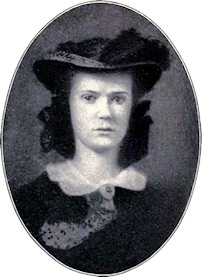
July 22d, Tuesday.
Another such day, and there is the end of me! Charlie decided to send Lilly and the children into the country early to-morrow morning, and get them safely out of this doomed town. Mother, Miriam, and I were to remain here alone. Take the children away, and I can stand whatever is to come; but this constant alarm, with five babies in the house, is too much for any of us. So we gladly packed their trunks and got them ready, and then news came pouring in.
First a negro man just from the country told Lilly that our soldiers were swarming out there, that he had never seen so many men. Then Dena wrote us that a Mrs. Bryan had received a letter from her son, praying her not to be in Baton Rouge after Wednesday morning, as they were to attack to-morrow. Then a man came to Charlie, and told him that though he was on parole, yet as a Mason he must beg him not to let his wife sleep in town to-night; to get her away before sunset. But it is impossible for her to start before morning. Hearing so many rumors, all pointing to the same time, we began to believe there might be some danger; so I packed all necessary clothing that could be dispensed with now in a large trunk for mother, Miriam, and me, and got it ready to send out in the country to Mrs. Williams. All told, I have but eight dresses left; so I’ll have to be particular. I am wealthy, compared to what I would have been Sunday night, for then I had but two in my sack, and now I have my best in the trunk. If the attack comes before the trunk gets off, or if the trunk is lost, we will verily be beggars; for I pack well, and it contains everything of any value in clothing.
The excitement is on the increase, I think. Everybody is crazy to leave town.
Downing’s Civil War Diary.–Alexander G. Downing.
July 22, 2022
Tuesday, 22d–We removed our tents and had a general cleanup of the camp. We made brush brooms, took down all tents, swept the ground, then pitched our tents again.
0
July 22, 2022
We lay here two or three days taking in coal, &c., and it was finally arranged that the iron-clad Essex should run down by the batteries, with a prospect of destroying the ram, and of relieving the wooden ships which had already been ordered down the river. Accordingly, on the morning of the 22d we got under way, and awaited the appearance from above, ready to attack the ram or assist the Essex, as the case might require. At six o’clock firing commenced, and soon the Essex appeared, followed by a small wooden ram, and proceeded down through the batteries, giving the ram a broadside as she passed her, while the whole rebel line opened upon her. I here witnessed a most sublime picture in naval operations,–a lone vessel running the gauntlet of some thirty cannon placed in the hillside, raining a shower of shot and shell thickly around her. She escaped, however, with the loss of one man killed, and a single shot through her armor.
War Diary of Luman Harris Tenney.
July 22, 2022
22nd. Read in “Guy Mannering.” Issued rations for eleven days. Horses got away. Looked all over the country until the next day at 4 P. M., when we marched.
July 17 to 23, 1862
July 22, 2022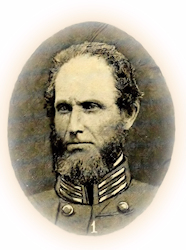
July 17th—Find Lieut. Grier at Dunlop and Moncure Hospital, badly wounded. Glad to see the good man. Ride to camp and spend night on ground.
July 18th—Ride to Pa’s. Wife and I visit Lieut. Shaw and find him dying. One of the noblest men I ever knew. We visit Lieut. Grier.
July 19th—Walk to Camp Winder Hospital. Ride to camp and find J. J. Wicker dead. Spend night in camp.
July 20th—Preach and visit sick. Ride to Pa’s late.
July 21—Ride to camp with wife and children and find Capt. D. C. Allen, Lieutenant Cain, Sergeant Ellis and many others sick. In the afternoon visit Leonard, Galloway, Grier, etc.
July 22—Ride to Mechanicsville with wife and children. Visit battlefield. Bury A. D. McPherson.
July 23—Visit Grier. Last visit. He dies on 26th. Get permission to go to North Carolina with sick child.
Journal of Surgeon Alfred L. Castleman.
July 22, 2022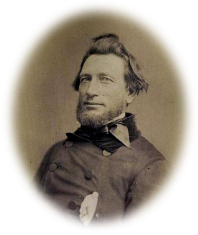
22nd.–I have received letters from my family to-day. One of them says, “We are not feeling well this morning.” “Who is not, and what is the matter? It is a dreadful thought that we must be thus separated from family without the slightest prospect of being able to see them when we know they are suffering.
“…though it was an awful job.”
July 22, 2022
Somewhere about July 14, ’62, Charley and G. must have gone home from Harrison’s Landing, probably in a returning hospital ship. The record is lacking–Sarah Woolsey’s letter of July 22 being the first mention of it. She had been serving all this time at the New Haven Hospital.
Sarah Chauncey Woolsey to Georgeanna Woolsey.
New Haven.
At The Barrack Hospital, July 22.
When the family leave you a little gap of time, write me one line to make me feel that you are really so near again. I cannot help hoping that if you go back, there may be a vacancy near you which I can fill. The work here is very satisfactory in its way, but is likely to come to an end before long if the decision about “Hospitals within military limits” is carried out. . . .
This is Sunday, and I have been here since half past nine–it being about 5 P.M. now . . . It has not been very Sunday-like, as I’ve mended clothes, and given out sheets, and made a pudding, but somehow it seems proper. Mary would laugh if she knew one thing that I’ve been doing–distributing copies of “A Rainy Day in Camp” to sick soldiers, who liked it vastly. I had it printed in one of our papers for the purpose. To-morrow I am going to change employments–take Miss Young’s place in the kitchen, and let her have a day’s rest, while Mrs. Hunt supplies mine here. Meantime as a beginning I must go and heat some beef tea for a poor fellow who hates to eat, and has to be coaxed into his solids by an after promise of pudding and jelly. . . .
P. S –Have come back from service and administered the beef tea, though it was an awful job. The man gave continual howls, first because the tea was warm, then because I tried to help him hold a tumbler, then because I fanned him too hard, and I thought each time I had hurt him and grew so nervous that I could have cried. Beside, there is a boy in that tent–an awful boy with no arms, who swears so frightfully (all the time he isn’t screeching for currant pie, or fried meat, or some other indigestible), that he turns you blue as you listen.
“No news from the Army of the Potomac.”—Diary of a Southern Refugee, Judith White McGuire.
July 21, 2022
21st.—Mr. _____ sick, but better to-day. This is the anniversary of the glorious battle of Manassas. Since that time we have had many reverses, but our victories, of late, have atoned for all, except the loss of life.
We have had another naval fight on the Mississippi, just north of Vicksburg. Our large gun-boat, Arkansas, ran into the Federal fleet of twelve or thirteen gun-boats and rams, and overcame them completely. Vicksburg stands the bombardment with unflinching gallantry. No news from the Army of the Potomac. It is reported that General Jackson has gone to meet General Pope, who is on this side of the Blue Ridge, marching, it is supposed, to join McClellan.
Mr. _____ takes a ride to-day; the first since his sickness. My heart is full of gratitude for public and private blessings.
Rebel War Clerk
July 21, 2022
JULY 21st.—A Marylander, a lieutenant employed by Gen. Winder to guard the prisoners (the generals and other high Yankee officers), came to me to-day, with a friend who had just arrived from Baltimore, and demanded passports to visit Drewry’s Bluff, for the purpose of inspecting the defenses. I refused, fearing he might (I did not like his face) have been corrupted by his prisoners. He said very significantly that he would go in spite of me. This I reported to the Assistant Adjutant-General, and also wrote a note to Gen. Wise, to examine him closely if he came within his lines.
A Confederate Girl’s Diary
July 21, 2022
July 21st.
It is impossible to discover the true story of last night’s alarm. Some say it was a gang of negroes who attacked the pickets in revenge for having been turned out of the Garrison; others say it was a number of our soldiers who fired from the bushes; and the most amusing story is that they took alarm at an old white horse, which they killed, mistaking him for the Confederates. One regiment has refused to do picket duty; and the story runs among these poor soldiers that our army, which is within a mile, is perfectly overwhelming. The excitement still continues.
I have been writing to the Brunots the news confirming the death of McClellan, the surrender of his army, and the good tidings of our Ram’s recent exploits above Vicksburg, and her arriving safely under the guns there. If we could keep all the dispatches that have passed between us since the battle of the forts, what a collection of absurdity and contradiction it would be! “Forts have been taken.” “Their ships have passed; forts safe; Yankees at our mercy.” “Ships at New Orleans. City to be bombarded in twelve hours.” “Forts surrendered.” “City under British protection.” “No, it is n’t.” “City surrendered.” “Mistake.” “Baton Rouge to be burned when Yankee ships come.” And so on, sometimes three times a day, each dispatch contradicting the other, and all equally ridiculous.
The crowd here seems to increase. The streets are thronged with the military, and it will soon be impossible to go even to Mrs. Brunot’s, which will be a great privation to me. . . . Five thousand are to come next week, and then it will really be impossible to go in the streets.
Downing’s Civil War Diary.–Alexander G. Downing.
July 21, 2022
Monday, 21st–It is very warm and dusty today. There are some fine orchards around Corinth and the apples and peaches are beginning to ripen now. Fresh fruit will help out our rations and add freshness and variety.
A Diary From Dixie
July 21, 2022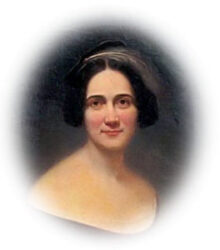
July 21st.–Jackson has gone into the enemy’s country. Joe Johnston and Wade Hampton are to follow.
Think of Rice, Mr. Senator Rice, ¹ who sent us the buffalo-robes. I see from his place in the Senate that he speaks of us as savages, who put powder and whisky into soldiers’ canteens to make them mad with ferocity in the fight. No, never. We admire coolness here, because we lack it; we do not need to be fired by drink to be brave. My classical lore is small, indeed, but I faintly remember something of the Spartans who marched to the music of lutes. No drum and fife were needed to revive their fainting spirits. In that one thing we are Spartans.
The Wayside Hospital ² is duly established at the Columbia Station, where all the railroads meet. All honor to Mrs. Fisher and the other women who work there so faithfully! The young girls of Columbia started this hospital. In the first winter of the war, moneyless soldiers, sick and wounded, suffered greatly when they had to lie over here because of faulty connections between trains. Rev. Mr. Martin, whose habit it was to meet trains and offer his aid to these unfortunates, suggested to the Young Ladies’ Hospital Association their opportunity; straightway the blessed maidens provided a room where our poor fellows might have their wounds bound up and be refreshed. And now, the “Soldiers’ Rest” has grown into the Wayside Hospital, and older heads and hands relieve younger ones of the grimmer work and graver responsibilities. I am ready to help in every way, by subscription and otherwise, but too feeble in health to go there much.
Mrs. Browne heard a man say at the Congaree House, “We are breaking our heads against a stone wall. We are bound to be conquered. We can not keep it up much longer against so powerful a nation as the United States. Crowds of Irish, Dutch, and Scotch are pouring in to swell their armies. They are promised our lands, and they believe they will get them. Even if we are successful we can not live without Yankees.” “Now,” says Mrs. Browne, “I call that man a Yankee spy.” To which I reply, “If he were a spy, he would not dare show his hand so plainly.”
“To think,” says Mrs. Browne, “that he is not taken up. Seward’s little bell would tinkle, a guard would come, and the Grand Inquisition of America would order that man put under arrest in the twinkling of an eye, if he had ventured to speak against Yankees in Yankee land.” [continue reading…]
By-the-by, isn’t a bed delicious?
July 21, 2022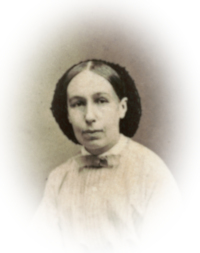
The whole staff of the Wilson Small seems now to have scattered and “fallen back” on Washington. The letter of July 21 is from Miss Katherine P. Wormeley. She and Mrs. William P. Griffin had been delightful friends to us. We were the four “staff” women on the Wilson Small through the whole Peninsular campaign. Miss W. came home on our old hospital ship the Daniel Webster, in charge of her last load of wounded from the Peninsula, Mrs. Griffin remaining at Hampton Roads in a receiving hospital for some weeks longer.
Miss Wormeley to Georgeanna Woolsey.
Newport, R. I., July 21st, ’62.
Dear Georgy: How did you take to civilization? I got along perfectly till I was caught going off the boat without paying my fare. Captain T’s mother was on board, which was a capital thing, and induced him to behave himself. I found intimate friends on board who were dear to me because they escorted me to supper. Georgy! if you ever take passage on the Metropolis, go down to supper for my sake and imagine how it affected me. My friends rather apologized for their desire to go down; for my part all I could do was to conceal my disappointment at not being able to eat everything. It seemed to me there was everything good that I had ever heard of, ending with peaches and ice cream.
I put the wounded captain into an express wagon (the nearest thing to an ambulance) and got home myself at 4 o’clock, to be finely cackled over by Mother. The next day the town called on me, beginning, like a Fourth of July procession, with the mayor and clergy. The next day I stayed in bed till after visiting hours. By-the-by, isn’t a bed delicious? I can’t believe it is the same mattress, the same blanket and sheets that I had before I went away. Of course you know that Dr. Wheaton with 1,700 men are here (six miles from here). Excursion boats run from here and from Providence to the camp. It is the fashionable drive, and the dear creatures are all female sutlers with baskets of pies and cakes and pickles and sweetmeats. Colonel Valium is here. I have sent him word that if I can do anything sensible with authority I will, meanwhile I do not intend going near the camp. . . . I am truly sorry that Colonel Howland’s furlough is shortened. Fanny Russell told me about it, and we spent all the time we were together in adoring “Mrs. H.” I have said one hundred times “I will tell that to Georgy,” but behold I have forgotten everything. Yesterday was a happy day to me, the dear little chapel was so peaceful and full of love and praise. I thought of Mr. – as I sat there. . . . No large mind doubts God or the excellence of life with Him merely through looking at the mean lives of others.
Good-bye, love to Mrs. Howland and C. W. W. I am yours faithfully,
K. P. Wormeley.
Rebel War Clerk
July 20, 2022
JULY 20th.—I am back again, signing passports to the army. But yesterday, during the interregnum, the Beaverdam Depot was burnt by the enemy, information of its defenseless condition having been given by a Jew peddler, who obtained no passport from me.
A Confederate Girl’s Diary
July 20, 2022
July 20th, Sunday.
Last night the town was in a dreadful state of excitement. Before sunset a regiment, that had been camped out of town, came in, and pitched their tents around the new theatre, in front of our church. All was commotion and bustle; and as the pickets had been drawn in, and the soldiers talked freely of expecting an attack, everybody believed it, and was consequently in rather an unpleasant state of anticipation. Their cannon were on the commons back of the church, the artillery horses tied to the wheels; while some dozen tents were placed around, filled with men who were ready to harness them at the first alarm. With all these preparations in full view, we went to bed as usual. I did not even take the trouble of gathering my things which I had removed from my “peddler sack”; and slept, satisfied that, if forced to fly, I would lose almost everything in spite of my precaution in making a bag.
Well! night passed, and here is morning, and nothing is heard yet. The attack is delayed until this evening, or to-morrow, they say. Woman though I am, I am by no means as frightened as some of these men are. I can’t get excited about it. Perhaps it is because they know the danger, and I do not. But I hate to see men uneasy! I have been so accustomed to brave, fearless ones, who would beard the Devil himself, that it gives me a great disgust to see any one less daring than father and the boys.
I have been so busy preparing to go to the city that I think if the frolic should intervene and prevent my departure, I would be disappointed, though I do not want to go. It would be unpleasant, for instance, to pack all I own in my trunk, and just as I place the key in my pocket to hear the shriek of “Van Dorn!” raised again. This time it is to be [continue reading…]
Downing’s Civil War Diary.–Alexander G. Downing.
July 20, 2022
Sunday, 20th–No news of importance. The weather is very hot. We had company inspection this morning, after which, because of the intense heat, the men remained in their tents. None were out during the day except those detailed on duty.
War Diary of Luman Harris Tenney.
July 20, 2022
20th. Reveille at 2 A. M. Marched at 4 A. M. Left Co. “A” to keep up communications. Encamped after 12 miles march. Major Burnett left with an escort for Leavenworth with orders and papers about Wier’s arrest.
Frights and Perils in Steele’s Bayou
July 20, 2022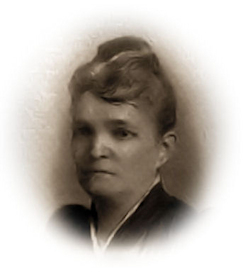
Sunday, July 20, 1862.—A little way down the Yazoo on Friday we ran into McNutt’s Lake, thence into Chickasaw Bayou, and at dark landed at Mrs. C.’s farm, the nearest neighbors of H.’s uncle. The house was full of Confederate sick, friends from Vicksburg, and while we ate supper all present poured out the story of the shelling and all that was to be done at Vicksburg. Then our stuff was taken from the boat, and we finally abandoned the stanch little craft that had carried us for over one hundred and twenty-five miles in a trip occupying nine days. The luggage in a wagon, and ourselves packed in a buggy, were driven for four or five miles, over the roughest road I ever traveled, to the farm of Mr. B., H.’s uncle, where we arrived at midnight and hastened to hide in bed the utter exhaustion of mind and body. Yesterday we were too tired to think, or to do anything but to eat peaches.
Note: To protect Mrs. Miller’s job as a teacher in post-civil war New Orleans, her diary was published anonymously, edited by G. W. Cable, names were changed and initials were generally used instead of full names—and even the initials differed from the real person’s initials. (Read Dora Richards Miller’s biographical sketch.)
Rebel War Clerk
July 19, 2022
JULY 19th.—This morning early, while congratulating myself on the evidence of some firmness and independence in the new Secretary, I received the following note:
“SIR:—I have just been directed by the Secretary of War that he has turned over the whole business of passports to Gen. Winder, and that applications for passports will not be received at this office at all.
“A. G. BLEDSOE,
“Asst. Sec. War.”
Of course I ceased operations immediately. So large a concourse of persons now accumulated in the hall, that it was soon necessary to put up a notice that Gen. Winder would grant them passports. But the current set back again. Gen. Winder refused to issue passports to the relatives of the sick and wounded in the camps, well knowing the generals, his superiors in rank, would not recognize his authority. He even came into the department, and tore down the notice with his own hands.
Downing’s Civil War Diary.–Alexander G. Downing.
July 19, 2022
Saturday, 19th–Everything is very quiet. With the exception of a few cases, the health of the men in camp is generally good. But the men are becoming restless. All would rather be in active service, for this camp service will never bring the war to a close.
War Diary of Luman Harris Tenney.
July 19, 2022
19th. Kept up after eleven and packed up. The circumstances of the trouble with Wier are these: On account of drunkenness and his seeming determination to starve us out, Col. S., all the officers in his brigade and most of the others approving, concluded to arrest him; sent the adjutant with a detail of 100 men who ordered him under arrest. He refused the order. The detail presented bayonets and took him prisoner. Took him to Col. S.’s tent, where were officers representing most of the regiments. When he saw Capt. Allen of the Battery, he said, “And are you here?” and burst into tears. I never saw so much excitement. All were glad. Before this Col. S. had determined if rations did not come by Monday to march his brigade north. Left the Indians there, marched 39 miles to our old second camp, slept on the prairie as usual. Nettleton came along slowly during the day. Officers began to be frightened after 4 or 5 hours, and ordered an ambulance to go back for him. Just then he came up.
“I guess there are no hopes of a fight there until autumn. I’m getting tired of doing nothing…”–Army Life of an Illinois Soldier, Charles Wright Wills.
July 19, 2022
July 19, 1862.
I don’t know whether I have any business sending such a document as I enclose, but guess its no difference. Two spies came in to-night and report that there are not more than 15,000 or 20,000 of the enemy left at Tupelo and Saltillo. Bragg took a large force with him and went over in the direction of Chattanooga a few days since. A fortnight, nearer a month, since we had quite a large force stationed at Boonville. One of the men started to go back to Rienzi on business, and had not been heard of since until day before yesterday, when his body was found midway between the two places with four bullet holes through it. It lay some distance from the road, and was discovered by a man of the 2d Brigade while looking for water. He was undoubtedly murdered by some citizen. Day before yesterday Mrs. Pierce, wife of a captain in the 36th Illinois, rode out in an ambulance, escorted by a corporal, to get some fruit in the country. A party of guerrillas gobbled the party up while they were inside of our pickets, and took them to Ripley. They sent Mrs. Pierce back yesterday. She was well treated. I guess there are no hopes of a fight there until autumn. I’m getting tired of doing nothing, although I certainly should be satisfied, having easier times than almost any one in the service.
Halleck left here yesterday for Washington. Trains are running down here from Corinth every day now, so we are only three days behind the dates of papers received, which is better than eight or ten, as heretofore. We have had the most splendid rains for a few days, and the weather is very seasonable in temperature. We are living almost wholly on fruit: apples, pears and blackberries, fresh, and peaches and strawberries canned. Don’t want for anything, but I still (so unreasonable is man) at times, think that I’m not enjoying myself as well as I used to in the 8th. I know I couldn’t stay out of the service while the war continues, but I would like so well to have peace once more, and be civilized awhile. There’s a good time coming. Don’t it come slowly? I write all the colonel’s letters now except those to his wife, and shouldn’t wonder if he’d have me do that next. At first he used to read them over very closely, but now he often signs without asking what they are about. To-night he told me was going to make me inspector general for brigade. Making two generals out of one lieutenant isn’t fair. I’m too lazy and modest for such a position and think I can coax him to appoint a chap I have my eye upon.
If you come back feeling weak, you will be obliged to leave again.
July 19, 2022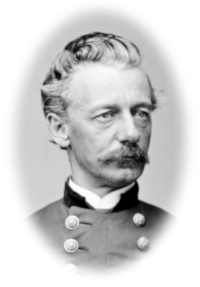
Joseph Howland kept up constant communication with the 16th and his commanding generals, always in the hope of going back, in spite of all discouragements.
Gen. Henry W. Slocum writes to him:
Harrison’s Landing, July 19, ’62.
My dear Colonel: Yours of the 16th has just come to hand. I am sincerely glad that you are doing so well and I shall be rejoiced to see you back. I think the major is doing well, but there is nothing like having the head present. Still I hope you will not think of returning till you are fully recovered. If you come back feeling weak, you will be obliged to leave again. This climate is very debilitating, and nearly all the officers, even the strongest, are affected by it. . . . My advice to you is to remain at home until some move is made here.
. . . As to your conduct and that of your regiment on the 27th, I hear but one opinion–all speak in terms of praise, the strongest terms.
. . . General Franklin told me to say to you that you must not come back till you are well. He (Franklin) is about half sick. I am in the same condition–too sick to be worth much and too well to go home. . . . Remember me to Mrs. Howland and tell Miss Georgy that her favor has been received and that I will “follow them with a sharp stick ” as requested.
Yours truly,
H. W. Slocum.